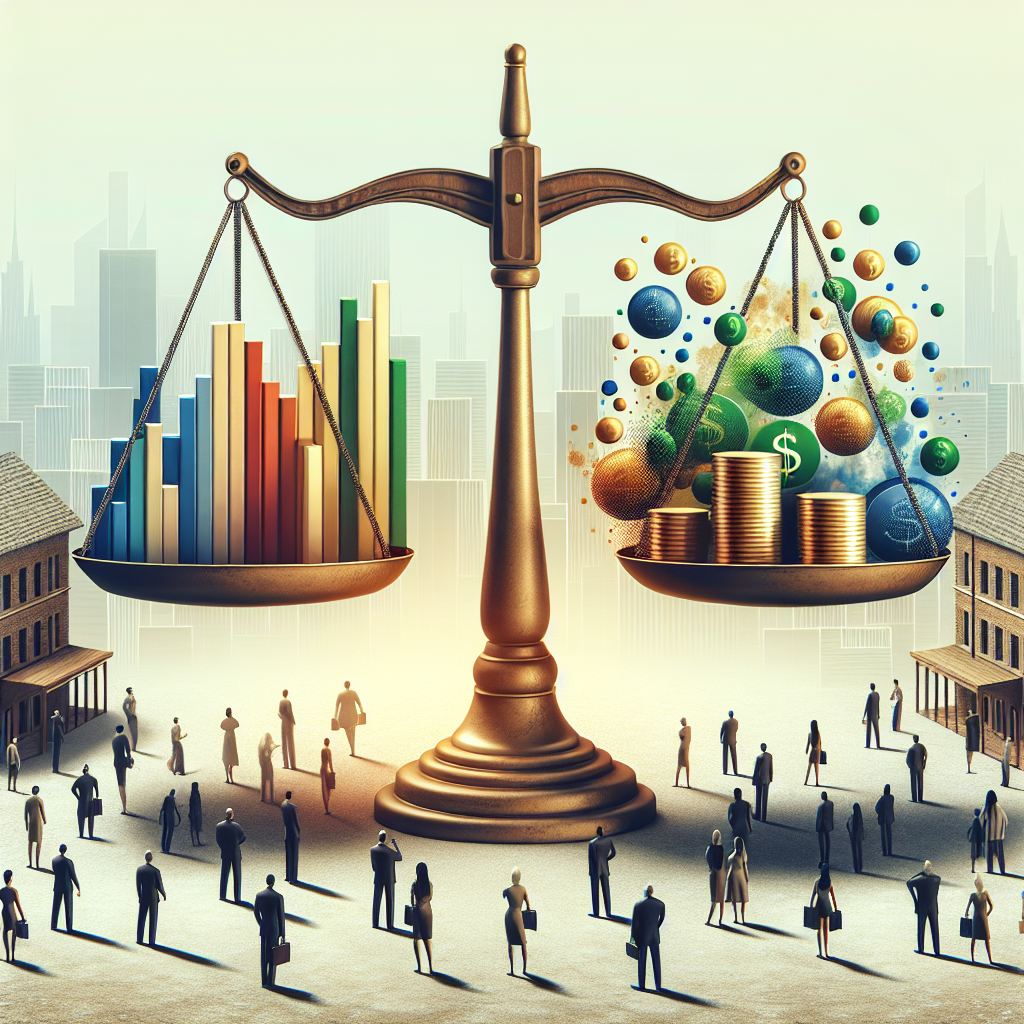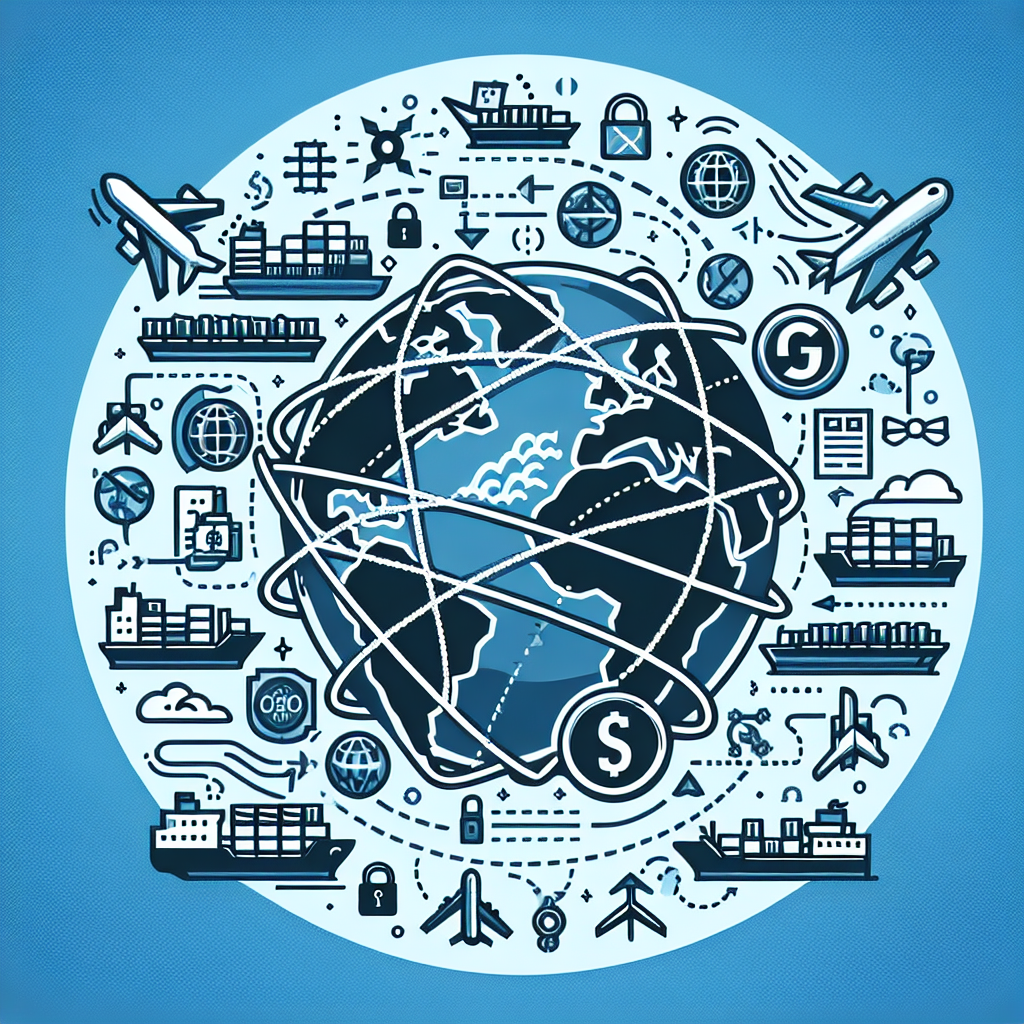
The Effect of Economic Policy on Public Opinion
In 2025, understanding the intricate relationship between economic policy and public opinion is essential for policymakers, economists, and citizens alike. Economic policies shape the economic landscape and can greatly influence public sentiment. With the continued evolution of the global economy, especially in the wake of the COVID-19 pandemic, examining how these policies impact public opinion has become progressively relevant. This article delves into this relationship, exploring critical factors that influence public perception, the role of media, and the implications of economic trust on societal behavior.
Understanding Economic Policy
Economic policy encompasses the strategies and actions taken by governments to influence their economies. This can involve fiscal policies such as taxation and government spending, monetary policies that regulate the money supply and interest rates, and regulatory policies that manage both the behavior of businesses and the economic environment. In 2025, we see governments adopting varied approaches to economic recovery, focusing on sustainable development, technological innovation, and social equity in response to the changing economic landscape globally.
As nations recover from the economic impact of COVID-19, policies now emphasize resilience against future shocks. Advanced economies are increasingly looking towards green policies, promoting renewable energy, and integrating climate change perspectives into economic planning. This shift not only reflects a change in economic strategy but also highlights a growing awareness among citizens regarding environmental issues—a factor significantly shaping public opinion on economic policy.
The Role of Public Perception in Shaping Policy
Public perception is a crucial determinant of policy acceptance and can significantly influence political agendas. In 2025, as economic challenges like inflation and unemployment continue to affect daily lives, public opinion is often shaped by immediate experiences and media portrayals of economic policies. When citizens feel that economic policies are effective in addressing their needs—like job creation or cost-of-living adjustments—they are more likely to support their continuance. Conversely, if policies are perceived as ineffective or detrimental, skepticism and dissent grow.
Moreover, public opinion research shows that individuals are more likely to digest complex economic policies when they can relate them to personal experiences. Storytelling is a powerful tool in shaping public sentiment as politicians and commentators frame narratives around economic policies using relatable anecdotes. This narrative-building can toggle public opinion, elevating support for policies that resonate on a human level, regardless of their broader economic implications.
The Media’s Influence on Economic Perception
In 2025, media remains a powerful force in shaping public opinion about economic policy. With the proliferation of digital platforms and social media, news dissemination occurs at lightning speed. Citizens are bombarded with information, analysis, and opinions that can rapidly sway their perspectives on government policies. The framing of economic news by journalists can either bolster or undermine public confidence in economic initiatives. A positive portrayal of a government’s fiscal stimulus package, for instance, can foster optimism about recovery, while negative coverage of rising inflation rates can lead to fear and skepticism.
Moreover, misinformation and sensationalized reporting can distort the public’s understanding of economic policies. In recent years, there has been a growing concern about the spread of false narratives that can undermine vital economic initiatives. Governments and independent organizations have increasingly prioritized media literacy to equip the public with the necessary skills to critically assess the information they consume, cultivating a more informed electorate.
Additionally, political affiliations significantly shape media consumption patterns. In 2025, we see a pronounced divide whereby individuals often gravitate towards media outlets that reinforce their existing beliefs about economic policy. This partisanship can create echo chambers, intensifying polarized views on economic issues and potentially leading to societal rifts based on economic opinions.
The Correlation between Economic Trust and Policy Acceptance
Economic trust—the belief that economic institutions and policymakers will act in the public’s best interest—plays a foundational role in how policies are perceived. In 2025, surveys indicate that trust in economic institutions is at a critical juncture. As various economic policies are implemented, public attitudes towards these policies are heavily influenced by the perceived competence and integrity of those in charge. When trust is high, people are more inclined to embrace new economic reforms as beneficial.
A decline in trust can lead to heightened skepticism regarding government interventions. In the wake of economic crises, trust can be fragile and easily eroded by perceived failures in policy execution. The consequences are profound; when the public lacks confidence in their economic leaders, it can lead to social unrest, protests, and calls for drastic political change. Consequently, it’s crucial for those in power to not only enact effective policies but also communicate transparently with the public regarding their intentions and expected outcomes.
Moreover, the establishment of transparent mechanisms for evaluating policy effectiveness can bolster public trust and improve perception. For instance, involving citizens in discussions about economic policies through town halls or public forums can foster a sense of ownership and accountability, leading to greater acceptance of governmental measures. In 2025, as countries navigate complex economic challenges, establishing trust through participatory governance may prove more essential than ever.
Case Studies: Economic Policy and Public Opinion in 2025
Examining specific case studies yields valuable insights into the dynamic between economic policy and public opinion. For example, the implementation of the Green New Deal in various countries has sparked vigorous public discourse on sustainability. Support for this policy has surged largely due to its appeal to younger generations, who prioritize climate action. Electoral campaigns centered around green economy initiatives have shown a marked increase in voter turnout among environmentally conscious citizens, effectively reflecting changing public opinion.
Conversely, proposals for increasing taxes on the wealthy to fund social programs have met with mixed responses. While some segments of the population support progressive taxation as a means to achieve greater economic equality, others view it as punitive, fearing stunted economic growth. The polarized opinions on such fiscal policies illustrate how economic policies that directly affect personal financial situations can lead to sharply divided public sentiment.
Additionally, the aftermath of significant economic disruptions, such as the global supply chain crisis, shows how public opinion can pivot concerning the effectiveness of government responses. Many citizens assess policies based on their everyday experiences with inflation, availability of goods, and job security. Governments that successfully address these immediate concerns often enjoy increased public support, reinforcing the need for quick, responsive economic policy-making.
Conclusion
In summary, the effect of economic policy on public opinion in 2025 is profound and multifaceted. The interplay between economic policies and public perception is shaped by a host of factors including media influence, economic trust, and individual lived experiences. As governance evolves to meet new global challenges, fostering transparent communication and actively engaging citizens will be pivotal in shaping favorable public opinion towards economic initiatives. Understanding this relationship not only benefits policymakers and economists but also empowers citizens to critically engage with the policies that shape their lives.
FAQs
1. How do economic policies affect public opinion?
Economic policies affect public opinion by influencing everyday life, shaping perceptions of government effectiveness, and responding to immediate societal challenges such as employment and inflation. When policies address citizens’ needs, public sentiment generally aligns positively.
2. What role does media play in shaping opinions on economic policy?
Media plays a critical role by framing economic news, which can either bolster or undermine public confidence. The way economic issues are presented can lead to significant shifts in public perception, especially in a media-saturated environment.
3. How can governments build trust regarding economic policies?
Governments can build trust by maintaining transparency, engaging in clear communication about policies, and involving citizens in the decision-making process. Establishing a track record of effective policy implementation also fosters trust.
4. Are there examples of economic policies that successfully changed public opinion?
Yes, initiatives like the Green New Deal showcase how policies that resonate with the values of specific demographics can gain public support. Conversely, policies such as tax increases can polarize opinion based on how they impact personal finances.
5. What is the significance of economic trust in policy acceptance?
Economic trust is vital for the acceptance of policies. High trust levels encourage public endorsement of government initiatives, whereas low trust can lead to skepticism and resistance, causing social unrest or political upheaval.
Democracy versus Autocracy: A Global Perspective
16. Dezember 2025The Impact of Sanctions on Global Trade Dynamics
16. Dezember 2025Geopolitical Tensions in the South China Sea
16. Dezember 2025
Leave a reply Antwort abbrechen
-
Formula 1 Drivers Gear Up for 2024 Season
28. November 2025 -
Political Journalism and the Art of Storytelling
28. November 2025 -
NBA Preseason Highlights You Can’t Miss
13. Juli 2025





